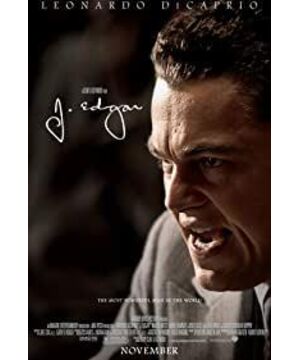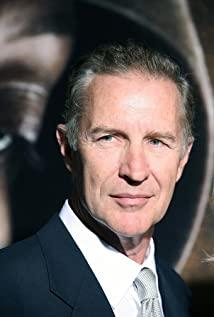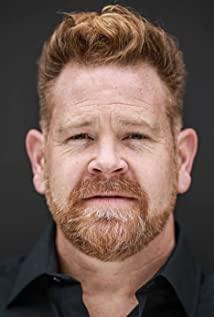It turns out that this Hoover is not another Hoover, and I have been thinking about why the time is not right. When I saw the fifteenth minute, I decided to go to Baidu first. President Hoover's full name is Herbert Clark Hoover (1874-- 1964), the founder of the FBI, John Edgar Hoover, was born in (1895-1972) and served for 48 years. The film only points to some major events in Hoover's life, focusing on the performance of Hoover's character. In 1919, the home of U.S. Attorney General Mitchell Palmer was killed GCZY elements dropped the bomb when Hoover, a 24-year-old who had just graduated from George Washington University Law School, arrived at the scene. Palmer recruited Hoover to enter the Department of Justice and asked him to form a special intelligence unit (GIU). Hoover and the members of the group successfully captured Emma Goldman, the spiritual mentor of American anarchism at the time, and the members of the group with careful reasoning and investigation. Violent perpetrators. Hoover later established the FBI fingerprint database, and the source of this idea was the card retrieval system he designed for the US Library of Congress in the 1920s. He was the earliest advocate and practitioner of information warfare (personal data networks and information taxonomy), and a pioneer of criminology (especially forensic science and criminal psychology). Hoover's relationship with deputy Clyde Tolson begins. Clyde said, "I only have one condition, that no matter how old or bad the relationship is, we can't miss the time of lunch or dinner every day." This is too obvious. Lindbergh's kidnapping of young children officially heralded the rise of the FBI. In 1932, the famous American pilot Lindbergh made the first transatlantic flight without landing. His 18-month-old son was kidnapped from his New Jersey home despite paying a ransom, and his body was found near his home two months later. After investigating the Lindbergh family's maid and nanny, the case was shelved due to no evidence. Because the case involved celebrities and the brutality of the crime, the case was a sensation not only in the United States, but also in the world. The clues about the case are also extremely limited, limited to a blackmail letter asking for $50,000 to redeem the child, and a very rare stamp on the letter; vague footprints under the window; ladders made by the murderer; There was a chisel not far from the site. It wasn't until two years later that police finally identified a suspect, the New York carpenter Haptman. After identifying Haptman as a suspect, the FBI intervened, using a "micro-evidence" approach, and during a subsequent search, police found a plane in his garage, with tool marks on the plane that matched those on the ladder . In addition, a police officer disassembled his small attic and brought it back to the General Bureau of Investigation. The inspection found that one of the trabeculae on the floor of the attic had been sawed off. Kohler put the 16th rung into this part, the eye of the needle and the rung on the trabecular. The nail holes on it are completely integrated. By analyzing wood and its texture, Kohler said the 16th The strip and this part of the attic were previously a unit. While the concurrent investigation of Haptman also used handwriting comparisons and ransom numbers to identify him as the user and depositor, Professor Kohler's analytical evidence is the clearest and most powerful part of it, as it demonstrates the How the plane was found in Haptman's garage and how it was used to make ladder rungs. Eventually Haptman's defense surrendered, and Haptman was found guilty and was electrocuted to death. Hoover deftly turned public attention into leverage to push Congress to pass the Lindbergh Act, securing a far-reaching principle for the FBI he founded: Once a victim crosses state lines, it is a federal crime, and the FBI Will replace state troopers as the main body of law enforcement (though that seems a bit self-evident today). This principle is the first red line of decentralization of federal and local functions, and it is also the key to the rapid rise of the FBI. With his high spirits, he gradually became accustomed to playing the public in the palm of his hand, and with the expansion of power, he gradually turned to darkness. Using his investigative powers, he began to use illegal means such as wiretapping of government officials. Roosevelt, Truman, Kennedy, and Nixon have all been threatened directly or implicitly by him. He instructed the FBI to investigate the former US first lady Eleanor Roosevelt, suspecting that she had a same-sex lover and wanted to obtain blackmail capital; US Ambassador to the United Nations Adlai Stevenson ran for president in 1952, and Hoover sent people to spread The rumor that Stevenson is gay destroys his political image; after the Supreme Court tightened the FBI's power to arrest GCZY elements at will, Hoover launched an illegal secret arrest program: "COINTELPRO" . After the 1960s, due to the deepening of the fear of the GCZY ghost, Hoover was suspicious of many organizations and used various means including infiltration, rumor, stealing, and monitoring to remotely control. The biggest incident, of course, was the illegal wiretapping of Martin Luther King, Jr. Here, I learned about Martin Luther King's personal virtue. As a priest, he committed adultery and prostitutes; as a doctor, he plagiarized and plagiarized. Martin Luther King Jr.'s sex tapes were sent to the American media, to the funders of the civil rights movement, and to King's wife. However, the American media has surprisingly and unanimously refused to publish these materials, believing that the sex scandal has nothing to do with the black civil rights cause led by King, on the contrary, Hoover's wiretapping and the like are more abhorrent. Ironically, Hoover wanted to use the recording of Martin Luther King Jr.'s derailment on the eve of the Nobel Prize as a bargaining chip, but his same shady relationship with Clyde made him a target for New York gangsters. In fact, starting with Truman, various U.S. presidents, including Kennedy, Johnson and Nixon, have considered removing Hoover, but in the end, they all voted for it. Hoover's greatest resources, the tapes and wiretap transcripts, forced anyone who wanted to deal with him to weigh the possible political impact. In 1964, just before Hoover's congressional presentation on the Kennedy assassination, Johnson waived the statutory retirement age for U.S. government officials (70 at the time), approving Hoover as director of the FBI "for life" (interestingly, Hoover also The 70-year-old immunity was applied to Clyde, who kept the latter as deputy director of the FBI). The final report on Kennedy's assassination was not released until after Hoover's death. The report cautions that the FBI may have been involved in planning the assassination of Kennedy. The FBI's investigation and exposure of the Clinton sex scandal also made "remarkable" contributions. After the Watergate incident, the status of privacy security has risen sharply, and Hoover has passed away, and the term of the FBI commander has been limited to 10 years. All we know is that Hoover and Clyde did not marry for life. Living next door, Tolson is also Hoover's heir, and the cemetery depends on each other after his death. Hoover likes fame and fortune, but he doesn't like to be in the public eye, and there are certain obstacles in social aspects. He is vain and enjoys the adoration of others, and will work in many ways to shape that adoration. Hoover has a strong self-esteem, does not allow others to question, has Oedipal tendencies and unknown sexual orientation. But he can be the chief of investigation for 48 years, 8 presidents and 16 attorneys general, and still stand tall? Why are many parties and even latecomers not used to him, but the FBI building is still called the Hoover Building? Why is his temper so irritable and there are still so many loyal followers around him? Not to mention his deputy Clyde Tolson... What about Helen Gandy, who was willing to serve as his private secretary for 54 years and never married? Not to mention that there are countless FBI agents who idolize Hoover, such as Mark Felt, who was not mentioned in the film, the deputy director after Tolson, who has followed Hoover's lead since his entry. On the morning of May 2, 1972, Hoover was found dead on the bedroom floor of his Washington home. That afternoon, President Nixon wrote in his personal diary: "He was in a suitable When he died: Hoover's luck was that he died at the right time, not until the president couldn't help but bring him down, did not wait for the various conspiracies he arranged to be exposed, and did not wait for him to be assassinated by countless enemies after he left office. He died in office, and in 1972, Nixon had just been re-elected. The story after that is even more interesting. It was this fortunate president who was too proud to appoint two new FBI directors in a row, ignoring the Hoover fan Felt, who was always in the position of deputy director, and the latter was furious. Find the "Washington Post", act as the mysterious "Deep Throat", and break out the Watergate incident that horrified the world. The history of American politics and journalism has since been rewritten, and the president, like the head of the FBI, can no longer think he has supreme power. The name of the film uses the title used by J. Edgar, a private relative and friend, stating: The core of this biography is not to record the life and actions of the first commander of the FBI, but to pass these facts that have data to rely on. And some legends, to get a peek into the personality of this man named J.Edgar.
View more about J. Edgar reviews











